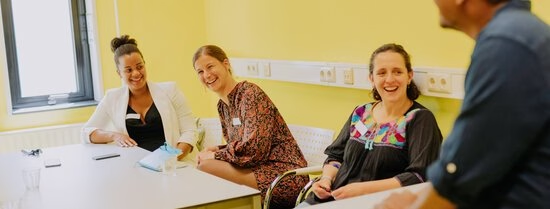On the 16th of June 2022, the DIT platform at Erasmus University Rotterdam and University College Cork co-hosted a workshop to encourage new opportunities to share work and ideas to further action-oriented research for energy transitions and climate neutrality. In this blog, we summarize some of the key insights based on the discussion.
Rotterdam and Cork are included within the 100 cities selected by the European Commission to lead the transition to becoming a climate neutral and smart city by 2030 as part of the EU Cities Mission. University College Cork (UCC) and Erasmus University Rotterdam (EUR) are also part of a collaboration called the European University of Post-Industrial Cities, also known as UNIC. In light of this collaboration and the climate ambitions, a workshop was organized to share perspectives between Dutch and Irish participants on action-oriented research in the transition space.
Many interesting research topics were presented during the workshop, for example: stakeholder trust and skepticism in corporate motives to invest in renewable energy, societal engagement methods to improve the resilience of low-income households, and the zero-emission mobility transition with a focus on justice. This is just a handful of the interesting research topics, and this blog zooms in further in on three of the many themes that emerged. Namely, those of trust, urgency, and leadership in deliberative research processes.
All researchers had in common that they had experimented with- or saw a need for future research with deliberative research processes, a set of methods closely linked to transformative and action-oriented research. Methods that passed by were reflexive monitoring, community concern approach, citizen assembly initiatives and multi-stakeholder planning processes. However, as befits a researcher, there were some critical observations to be made in further developing the use of deliberative processes in action research.

Trust
One participant made the observation that further exploration of the role of public trust in the mobilization of citizens would be valuable in using deliberative processes. This, as the building of trust, is indispensable in deliberative processes, which takes a lot of time and empathy: “research is only successful if trust is built. There are different types of trust, but trust of researchers in the people they are working with is really important”. However, asking for trust in change can be an uphill battle, and even mobilize people against change. Related to this unintentional negative consequence, it was argued that not only the (lack of) trust can counteract deliberative processes, but also the lack of a common understanding in poorly designed processes, which can create even more conflict.
Urgency
A tension in building trust in deliberative processes was also recognized during the workshop. Seeing the time it takes to build trust and to engage with communities, the issue of urgency in addressing the challenges faced emerged. This pointed to a question to be explored in the use of deliberative processes: “how can we marry participatory processes that take a lot of time with the high speed to realize our 2030 goals?”
Leadership
As an initial prelude to new research, the topic of leadership in policy changes was posed to further explore this question. That is, looking at how much pushback is created when strong leadership is shown before public trust is built, and how much pushback is created when there is a lack of leadership. So perhaps there is a need to make a blueprint for policy change that backs up how leadership can be successful in the long term. Should we experiment with action-research on implementing potentially ‘unpopular’ policies (to some sectors) that includes a justice perspective? Should we learn from citizen assembly initiatives to improve direct democracy and procedural justice, while still moving swiftly towards decarbonization? Questions enough to continue exploration.
All in all, the workshop produced many interesting intersections between the Dutch and Irish participants that are worth exploring further. Particularly when it comes to the positive and negative aspects that are inherent to action-research and deliberative methods. In this regard it proved to be insightful to share ideas with colleagues from a different institute. Perhaps further collaboration with other UNIC-universities could be a next step. In the meantime, new research collaborations can already start up based on this first meeting.

